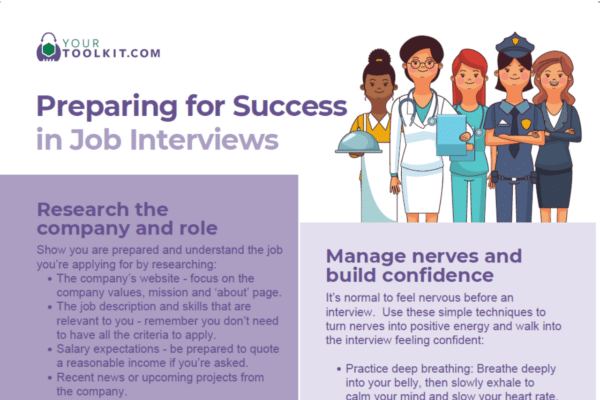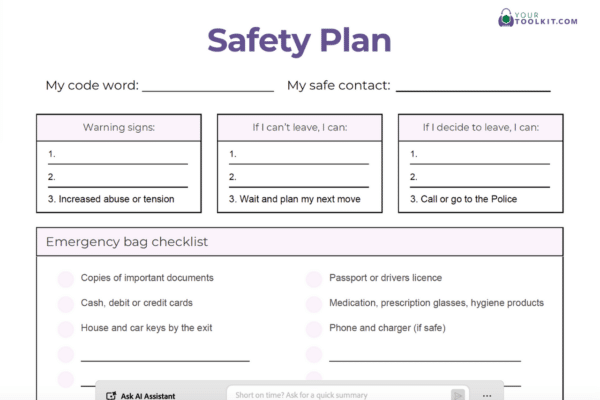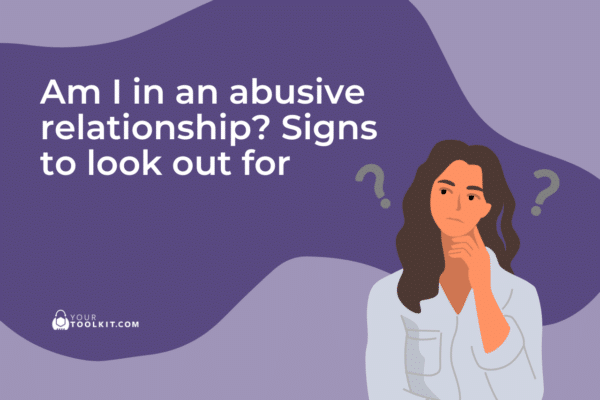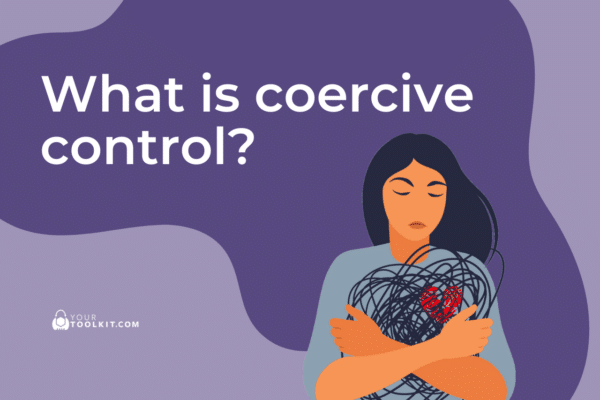Building, maintaining or starting your career can be both challenging and empowering when facing family and domestic violence. This guide provides practical steps to understanding your rights at work, receiving support from your workplace and developing your career.
Understanding your rights at work
Domestic violence leave and entitlements
Family and domestic violence (FDV) leave is a national entitlement in Australia governed by the Fair Work Act 2009, meaning it applies across all states and territories. This provides all employees ten days of paid FDV leave per year, including full-time, part-time, and casual workers.
The key points of FDV leave under the national system include:
- Eligibility: Every employee, regardless of their employment status (full-time, part-time, or casual), is entitled to the full ten days of FDV leave each year.
- When it applies: The leave is available from the first day of employment, with no waiting period required.
- Usage: Ten days are available yearly and do not accumulate if unused. Depending on the employee's needs, the leave can be a continuous block, single days, or even part days.
- Payment: The leave is paid at the employee's full rate for the hours they would have worked during the leave period.
Find more information about eligibility at the Fair Work Ombudsman family and domestic violence leave webpage.
Protection from discrimination and unfair dismissal
Australian law prohibits employers from discriminating against you or dismissing you because you are experiencing family and domestic violence.
- Anti-discrimination protections: Under the Fair Work Act 2009 and other state-based anti-discrimination laws, you are protected from any form of discrimination related to your experience of domestic violence. This includes being treated unfairly, denied opportunities, or dismissed because of your situation.
- Unfair dismissal: If you believe you’ve been unfairly dismissed due to domestic violence, you can lodge a claim with the Fair Work Commission. It’s important to act quickly, as there are strict time limits—generally 21 days from the date of dismissal.
The Anti-Discrimination Act 1977 provides additional protections against discrimination for employees experiencing domestic violence.
The Equal Opportunity Act 2010 offers strong anti-discrimination protections, making it unlawful for an employer to treat you unfairly because of domestic violence.
Queensland’s Anti-Discrimination Act also offers protection against discrimination and supports flexible working arrangements for those affected by domestic violence.
The Equal Opportunity Act 1984 includes provisions that protect employees from discrimination due to domestic violence.
Under the Equal Opportunity Act 1984, South Australians are protected from discrimination in the workplace due to domestic violence.
The Anti-Discrimination Act 1998 in Tasmania prohibits discrimination based on domestic violence, offering protection in the workplace.
The Anti-Discrimination Act 1996 protects against discrimination related to domestic violence in the Northern Territory.
The Discrimination Act 1991 in the ACT offers comprehensive protection against discrimination for those experiencing domestic violence.
Employment tribunals and fair work commission
If you face workplace disputes related to family and domestic violence, such as discrimination, unfair dismissal, or a breach of your rights, you can seek resolution through employment tribunals or the Fair Work Commission.
Fair Work Commission:
- Role: The Fair Work Commission (FWC) is Australia’s national workplace relations tribunal. It deals with disputes between employees and employers, including issues like unfair dismissal, general protections, and workplace bullying.
- How to file a claim: If you believe your rights have been violated, you can file a claim with the FWC. The process generally involves:
- Lodging a complaint: Submit your application to the FWC online, in person, or via mail. Ensure you meet the application deadline, usually within 21 days of the issue occurring.
- Conciliation: The FWC may arrange a conciliation session in which both parties try to resolve the dispute with the help of a conciliator. This is an informal process that aims to reach a mutual agreement.
Hearing: If conciliation is unsuccessful, the dispute may proceed to a formal hearing before the Commission, where a decision will be made.
Employment tribunals (state and territory specific):
Each state and territory has a tribunal system for handling employment disputes under state legislation. These tribunals can address issues such as discrimination or workplace harassment specific to the region.
Preparing for a tribunal or FWC hearing:
- Gather evidence: Collect all relevant documentation, including records of communications, employment contracts, and any other evidence that supports your case.
- Legal representation: Consider having a lawyer or legal advocate represent you at the hearing to ensure your case is presented effectively.
- Understand the process: Familiarise yourself with the tribunal or FWC process, including what to expect during hearings and how decisions are made.



